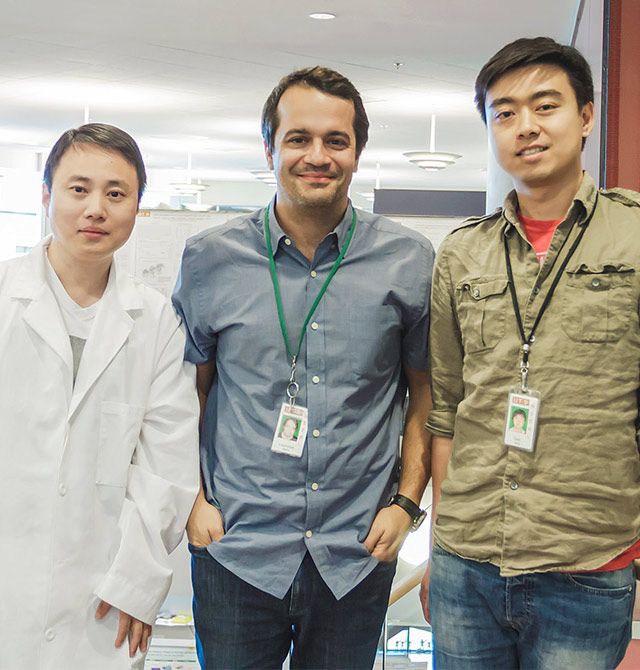Leonidas Bleris ’06 Ph.D pursues biological reverse engineering as UT Dallas professor
Throughout his graduate-student career at Lehigh, Leonidas Bleris ’06 Ph.D kept one foot in the department of chemical engineering and one in the department of electrical and computer engineering. Now a member of the faculty at the University of Texas at Dallas and head of its Systems and Synthetic Biology Lab, he’s integrated these fields into a single focus, and is shedding light on the mysteries of biological pathways.
Bleris earned his Ph.D. in electrical engineering in 2006 under the supervision of Mayuresh Kothare, the R.L. McCann professor and chair of chemical and biomolecular engineering.
"Interdisciplinary training is a hallmark at all levels within Lehigh," Kothare says, "and Bleris' combination of chemical engineering principles with electrical circuit theory and experimental biology is a great example of 'interdisciplinary' in action. His systems engineering background was strong enough to support a deeper study of feedback circuits in biology during postdoctoral studies at Harvard; not surprisingly, this culminated in his most recent success in unraveling complexities of biological networks at UT Dallas."
"Lehigh's research and graduate studies community prides itself on maintaining a supportive environment for students with interests that straddle traditional department and college boundaries," Kothare continues. "Bleris' ability to recognize and correctly identify findings such as these tells a great story about the value of a sound multidisciplinary background."
Bleris, an associate professor of bioengineering and 2014 NSF CAREER recipient, led a team from UT Dallas’ Erik Jonsson School of Engineering and Computer Science in a project that was recently covered in the journal Proceedings of the National Academy of Sciences (PNAS). The team’s findings could affect a wide range of applications relevant to public health and therapeutics.
In the article, “Discriminating Direct and Indirect Connectivities in Biological Networks,” Bleris’ team of researchers -- which includes research assistants Taek Kang and Dr. Richard Moore, postdoctoral researcher Dr. Yi Li, and Dr. Eduardo Sontag, professor of mathematics at Rutgers University -- show that the integration of engineering, mathematics and synthetic biology can lead to new insights on the properties of biological networks.
“You can think of pathways as the internal wiring of your cells, a network that is responsible for processing external and internal signals and making critical decisions,” explains Bleris in a UT Dallas press release. “If there is something wrong with a gene, then it will not only lose its normal function but also affect all its connections. Therefore, understanding biological networks and how information travels in pathways is important toward identifying the cause of diseases and designing effective therapeutics.”
Bleris' work is supported by the National Institutes of Health and the National Science Foundation, among others.

